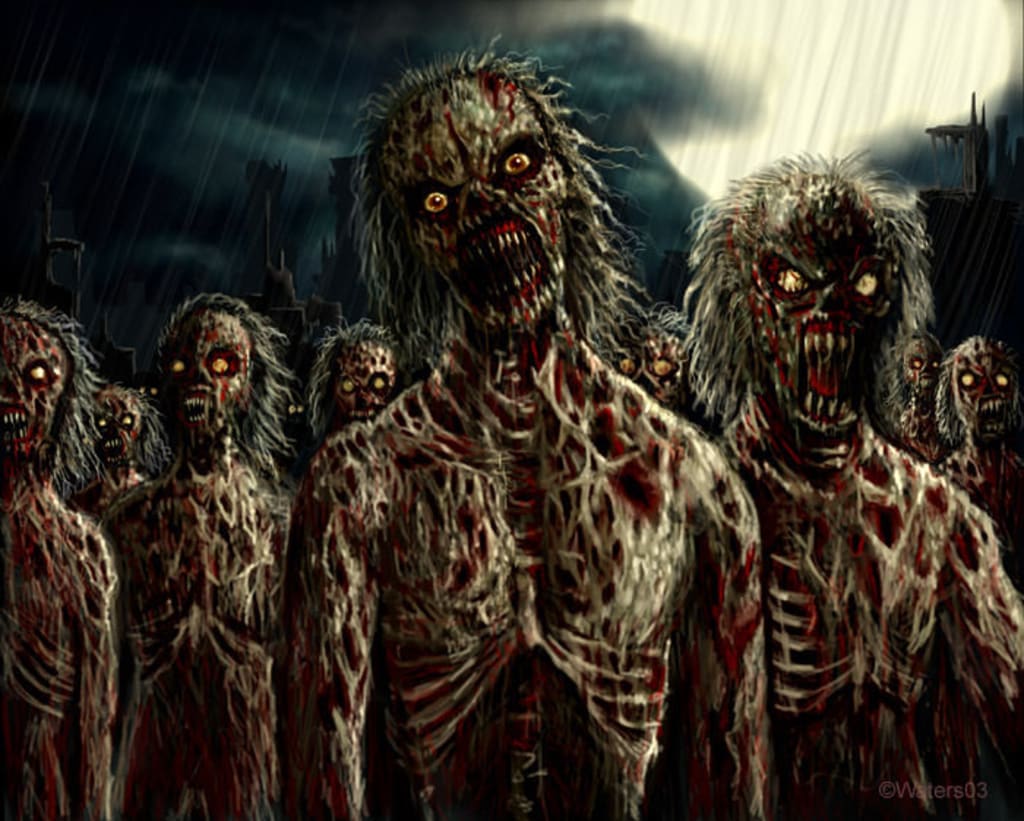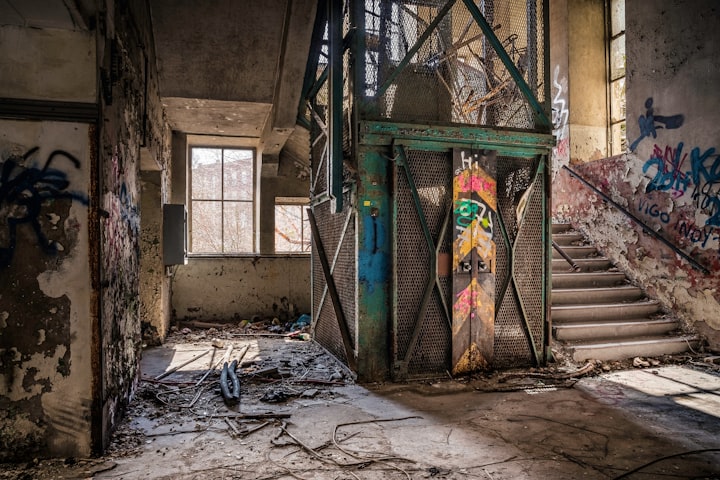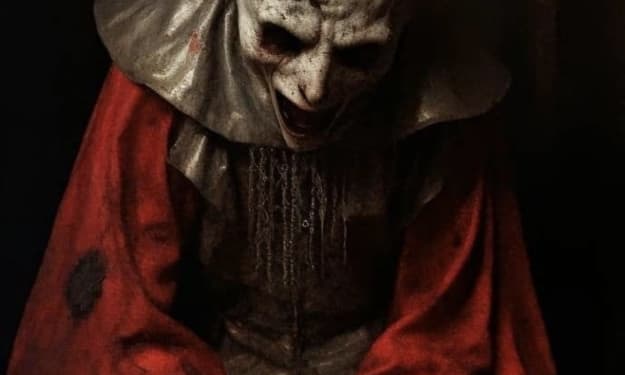Age of Fear
Why are we so fascinated with our terrors?

There is one thing that everyone in the population shares: Fear. Fear can take many forms to focus on a particular paranoia such as nuclear destruction, climate change, fear of foreigners, etc. But why do we have this desire for fear? A recent Rolling Stone article about our “age of fear” notes that most Americans are living “in the safest place at the safest time in human history.” (PBS) In our world today, not only is household wealth on the rise, but also the average lifespan and education. Violent crime and extreme poverty are at an all-time low since 1991. (PBS) Before our current technology and social media outlets, rumors and press coverage would fan the fires. But now, in our age of technological advances, the three F's race instantly through entire populations. Those three F's: Fears, fads, and fantasies. Do you remember the clown scare back in 2016? Everyone was on high alert for anything to protect themselves from the clown. Two years later, we now have a new fascination that scares us.
Although our fixation for dread has been around since the dawn of mankind, my beginning focus will come from the 1700 and 1800s. A time of revolutionary advancements that set out to question anything and everything. To find answers for all of life's mysteries and questions. Claiming that reason had the power to change the world. But of course, even then we were afraid. While the focus centered on the demonic and the hellish characterized medieval times (yes, even then humanity was focused on an old fear), the changes brought on by the Enlightenment and the Scientific Revolution created a whole new set of fears. What did these new fears bring to the table? Advancements in science and technology that we did not fully understand just yet to an increasingly crowded and complex world. At the time, tales of Gothic horror, haunted castles, secret compartments, and rotting corpses were the rage. The fictional monsters created during this period can be correlated to our obsessions today such as zombies and androids. They are our creation, but also our possible annihilation.
There is the created monster such as Dr. Frankenstein’s creature. This is something we have built and believe we can control until it turns against its creators. The creature has inspired the "killer" robots, androids, and cyborgs of today. Though each creation has its own characteristic that causes it to stand out, they all share a potential to become all too human and threatening. Frankenstein’s monster is said to represent concerns about the moral, social responsibility of science, and the changing role of capital and labor during the Industrial Revolution. The Promethean creature has haunted our imagination for centuries, its immortal ability to frighten also reveals his protean abilities to represent different kinds of terror throughout history. Some examples of the creatures "descendants" include the Androids from Ridley Scott's Alien franchise, the Synthetics from Fallout 4, and Cylons from Battlestar Galactica. All of these beings by our creation, and yet, our own possible destruction. Each outlet expresses their own variant of this “created monster,” all with their own unique and sinister version.
Recently, our new sensation is that of the zombie. The zombie emerged from a tale about the brutal Caribbean slave plantations of the 17th and 18th centuries. They were the soulless bodies of undead slaves who stalked plantations grounds, so the legend went. But pioneering films like Dawn of the Dead generalized the figure into an unthinking member of a mass consumer society. Unlike earlier monsters, who all stand alone even in a kind of grandeur, one zombie is barely distinguishable from another. What might the horrific image of mindless hordes out to eat our brains represent in the 21st century? It could symbolize whatever we fear will overwhelm and engulf us: Epidemic disease, globalization, illegal immigrants, and refugees. Or it could be something less tangible and more existential: The loss of anonymity and individuality in a complex world and the threat of impersonal technology that makes each of us just another number in an electronic list. Or even due to the sheer shock value of an undead creature with the sole goal of devouring you. Almost 35 years have passed since a ragtag troupe of gyrating zombies first captivated audiences worldwide, helping to make Michael Jackson’s 1983 hit “Thriller.” Our appetite for all things associated with the undead has only grown more pronounced since then when it comes to entertainment. The Walking Dead and the White Walkers from Game of Thrones are the most popular if not recognizable examples of this.
We go absolutely berserk when it comes to a fan favorite character's survival or demise. Seeing them in a high-risk situation and the stakes they are up against, we live for the adrenaline and fear upon watching it. But why? Are we subconsciously putting ourselves in their shoes, trying to fulfill a bottomless hole of the dissatisfaction of our own lives? We are trying to connect to characters in ways that haven’t been seen yet such as the Team Rick or Team Daryl infatuation in The Walking Dead, or who you want to see on the Iron Throne in Game of Thrones. In today’s youth, myself included, are not afraid to make jokes of our own oncoming deaths. Some make jokes simply for humor, others to say how they truly feel. Either way, there are memes galore about our future demise. Older generations see this as disturbing and psychologically damaging.
This raises the question: Does this fascination with monsters and personal fears, even with death, signal a need to confront our own fear of death? No. First, there is nothing new in our love of monsters. We have told each other scary stories since the beginning of time. We simply become so consumed in whatever infatuation we have, that over time, we add new factors to fall head over heels in love again. Our love of monsters reveals more than we intend to. Pop culture allows us to indulge our fears and desires without consequence; this explains the pleasure we currently derive from watching films or TV shows featuring monsters and the reality of death. From the gore to the screams, we're able to experience our fears without actually experiencing the trauma. Though this fixation to our fears causes its own problems, such as de-sentimentalizing or de-emotionalizing death. AMC’s hit series The Walking Dead is a post-apocalyptic story in the style of Cormac MacCarthy’s The Road (2006), a narrative that reveals our fears about the breakdown of society and the decay of culturally coded forms of morality and behavior in the face of sheer human survival. The films 28 Days Later (2002), I Am Legend (2007), and Max Brooks’s novel World War Z: An Oral History of the Zombie War (2006) not only confront the deterioration of society, but also speak to the terror of germ-warfare and super-viruses—diseases we can’t defend against and that could potentially mutate our whole sense of humanity.
I believe we are going backwards with our fear, and back to Gothic horror. It has the potential to be transgressive, to look “in a glass, darkly” and mirror back our own subconscious fears and misgivings. We have begun to confront our fears more literally. From zombies and their deteriorating look to the android fascination for creation or destruction. Monsters have typically represented the “other,” separated from humanity through distortion. What we fear most now is our own destruction within our creations. We are scared to advance without having a contingency plan in effect. With the pop culture's endless supply of different realities of our own apocalyptic future, we are able to entertain our own personalized fears for eternity. All we have to do? Choose our monster.
Sources
“Column: Why We’ll Always Fear Monsters.” PBS NewsHour, https://www.pbs.org/newshour/nation/column-well-always-obsess-fear-monsters
“David (USCSS Prometheus).” Xenopedia, http://avp.wikia.com/wiki/David_(USCSS_Prometheus)“Synth.” Fallout Wiki, http://fallout.wikia.com/wiki/Synth
About the Creator
Hannah Kannady
Hello all! I am a junior at the University of Arkansas - Fort Smith, my major is Education. I am striving to become a teacher, specifically in English at a higher level such as high school.






Comments
There are no comments for this story
Be the first to respond and start the conversation.